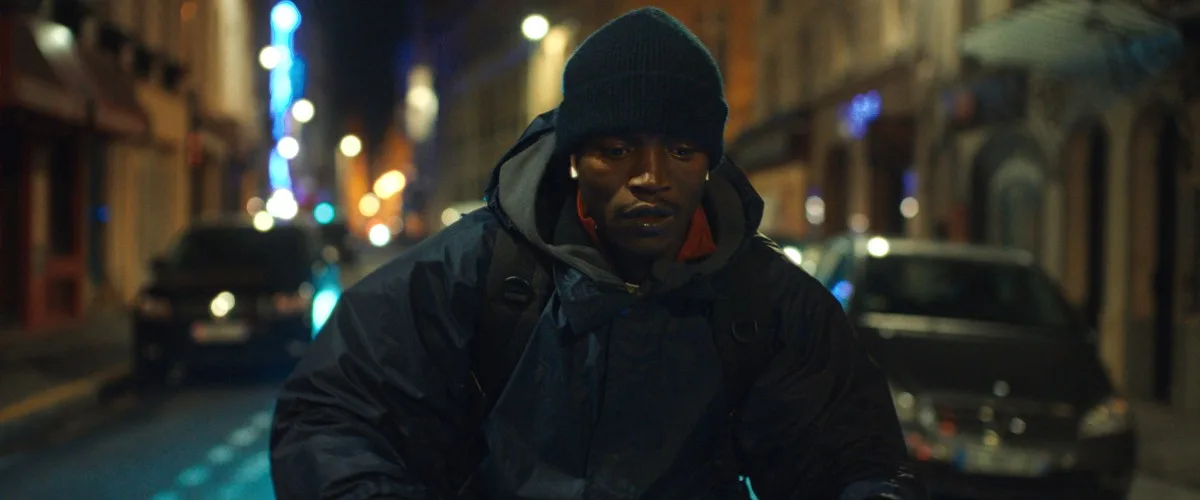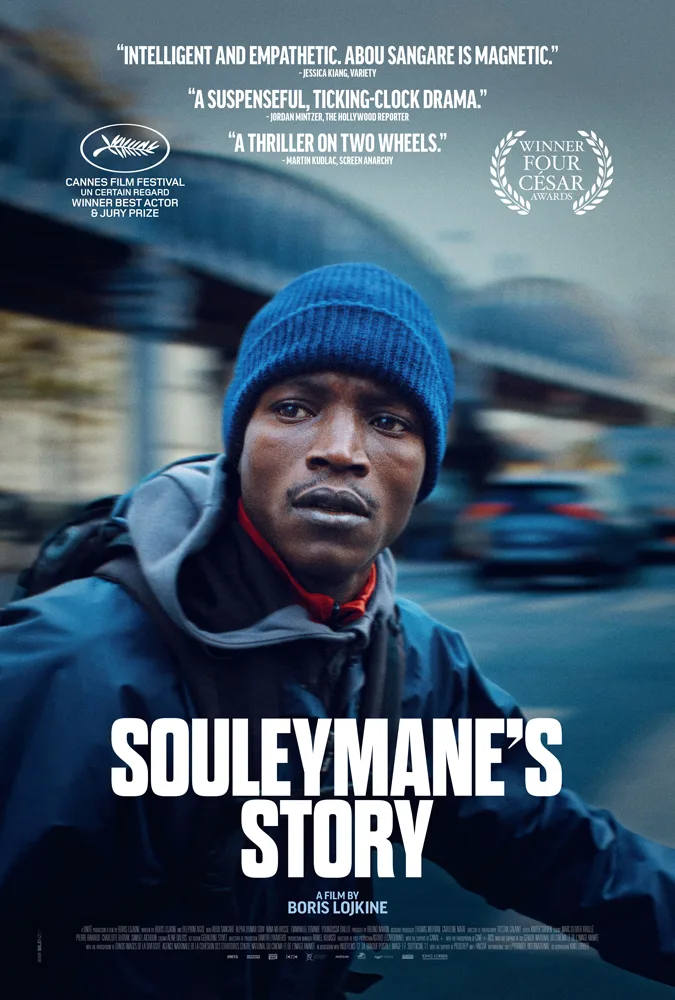In the anguishing character study “Souleymane’s Story,” dreams dissolve into despair. The film, directed by Boris Lojkine, is a trying narrative about Souleymane (Abou Sangaré), a Guinean immigrant anxiously applying for asylum in France. He is a pure spirit, the kind of person who simply wants to start a new life in a new country, but is hindered by a system that prioritizes exposing one’s trauma over accepting the content of their character. Consequently, if he hopes to gain asylum, he’s tasked with what must be an unnatural act for him. Souleymane must lie.
“Souleymane’s Story,” an intimate, handsome rendering of his troubles, serves as both his aching statement and a biting critique of an unjust immigration system.
When the film first premiered at Cannes 2024, I respected the picture, but I was admittedly wary of it. I’ve personally seen enough movies that trade in the traumatic memories of a Black person, particularly when a white filmmaker does it. But “Souleymane’s Story” doesn’t fall into that category. Rather, Lojkine and Delphine Agut’s considerate script is sympathetic and discerning about how much of Souleymane’s pain we must swim through.
When we first meet Souleymane, he is awaiting his appointment. There is a bruise around his left eye and smudges on his white shirt that require wiping. We can sense he’s been through an ordeal, we’re just not sure what yet. Lojkine takes us back a few days earlier. He reveals that Souleymane is a food delivery cyclist. He also shows us the intricate approach Souleymane must take to live. Since Souleymane doesn’t have a residence in France, he must rent his delivery account from Emmanuel (Emmanuel Yovanie), who stocks shelves in a beauty store. As we learn from other immigrants like Souleymane, leasing one’s identity is a common practice that Emmanuel is profiting from heavily. With what’s left of his earnings, Souleymane takes classes from Barry (Alpha Oumar Sow), who not only provides the papers necessary for asylum hearings but also develops a cover story for Souleymane.
The tale positions the Guinean as a political refugee who fled from his home country after being arrested in 2019 for his activist activities. In the elaborate narrative, Souleymane joined the socially liberal Union of Democratic Forces of Guinea (UFDG) in response to President Alpha Condé’s demolition of the homes in his neighborhood. He became a security chief for the UFDG and was eventually arrested in one of the many protests that occurred in 2019. Tortured in prison, he eventually escaped and bounced from country to country until arriving in France. For Souleymane, an honest man who struggles to make up lies much less remember one, the tale proves difficult to memorize.
Worst yet, his earnest, misplaced trust in people pales in the face of capitalism and racism’s grip on those around him. The white people he delivers to either see him as a nuisance or as less than human. Many of the Black people he leans on, such as Emmanuel and Barry, are also quick to judge him. “You Africans, always screwing things up,” sneers Emmauel. “You’re all the same. All of you,” complains Barry. Even the man watching Souleymane’s mother in Guinea is only fixed upon Souleymane paying for his phone credits in return for caring for her. It’s telling that much of cinemagrapher Tristan Galand’s photography here assumes blue hues, and that Xavier Sirven’s repetitions of scenes featuring Souleymane cycling, which are often shot from less-than-intimate medium shots, capture Souleymane’s difficulties. In these apathetic systems, he isn’t a person. He’s an object whose value can only be summed by his trauma, his race, and the little monetary value those around him can siphon.
Thankfully, not every waking moment of Souleymane’s life is horrific. He kids around with his fellow deliverymen, receives genuine help from the people who live in his houseless shelter, and is given other tokens of kindness. A soulful Sangaré, who won the Best Performance prize at Cannes in the Un Certain Regard section, also brings vitality and life to a mostly grim story. Though the film takes inspiration from Cristian Mungiu’s “4 Months, 3 Weeks and 2 Days,” a slice-of-life narrative about a pregnant woman navigating several obstacles to obtain an abortion, Sangaré’s emotive turn also recalls Charles Jang’s incredible work in Sean Baker and Tsou Shih-Ching’s “Take Out.” Like Jang, who plays an undocumented Chinese delivery cyclist in New York City, Sangaré, through a plethora of tightly calibrated facial expressions, quietly translates despair, determination, and hopelessness without resorting to melodrama. The result is a stunningly naked performance.
While “Souleymane’s Story” throws many roadblocks in this Guinean man’s way, it’s pretty clear where we’re heading. And while that predictability does slightly undermine the weightiness of the journey, the ending, a cathartic revelation, is granted immeasurable pathos due to Sangaré’s overwhelming openness as an actor. He pulls the immigration office scene, which in a lesser actor’s hands would be calculating, toward something on the edge of reality. That truth gnaws at every edge of “Souleymane’s Story,” a film whose depth of honesty keeps it feeling refreshingly human.




















